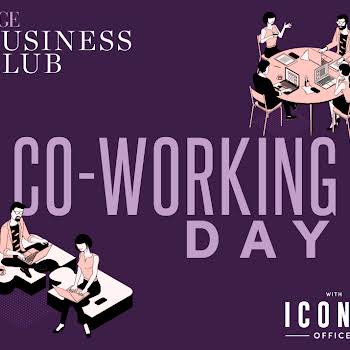
By Colette Sexton
04th Sep 2018
04th Sep 2018
Colette Sexton, news correspondent at The Sunday Business Post, on identifying and dealing with a bad boss (even if you are one yourself).
Do you have a bad boss? Or worse, (cue dramatic music) are you one? In good news, the majority of Irish professionals (a whopping 90 per cent), get on well with their managers. The survey from CV-Library revealed that 89.9 per cent of Irish people believe it is important to get on with your manager. They’re right. A mean boss or manager can have a detrimental effect on your day-to-day life and your professional progress. The research revealed that 51.7 per cent of people have actually left a job in the past because of a bad manager.
It can be tricky to spot a bad boss while avoiding falling into a paranoia trap of thinking you are the problem and you are a “bad employee”. While people have different expectations of bosses – some employees like clear guidance, others like to be left to their own devices, and so on – there are a few telltale signs.
The number one alarm bell is when a boss is a poor communicator. This means they do not explain to their employees what is expected of them, they do not set clear timelines or goals, they frequently change their minds and they do not provide regular feedback. No matter how good an employee is, unfortunately, they are not a mind-reader.
Bad bosses are often bullies. They can be overly critical and just plain nasty. Sometimes this can even progress to harassment or physical abuse of employees. They also use disciplinary measures when they are not needed, and throw out verbal and written warnings like there is no tomorrow. This creates a bad environment in the workplace and has a terrible impact on employee morale.
Another typical characteristic of a bad boss is someone that steals their employees’ ideas or takes credit for their work. Any manager or business owner worth their salt will tell you that they surround themselves with people that are smarter than them or have different skills to them. Good bosses recognise talent and are not threatened by it.
If any of the above sounds like your boss, the only solution is to change jobs, or if you are in a larger company, request a different manager. We are constantly told that we cannot change our partners’ personalities, and the same rule applies to our bosses. If you have a nasty manager, you will waste all of your time and energy at work trying to impress them without success.
If you recognised some of the above characteristics in yourself, then congratulations. The first step towards becoming a good manager is recognising your failures and taking measures to improve. Look into management courses to learn how to become a better boss. Analyse how you treat your employees and identify situations where you are harsher to one employee over another so you can avoid that happening again. Ensure that you clearly communicate your objectives – this could be through email, meetings, or over the phone.
Above all, make sure that your employees aren’t scared of you. While it might make you feel powerful to have people fear you, it will result in staff being afraid to approach you when there is a problem. Often, they might let problems fester due to their fear and they can quickly spiral out of control. There is a balance between being aggressive and being a complete walkover. Achieve that, and you’ll officially belong in the good boss category.























